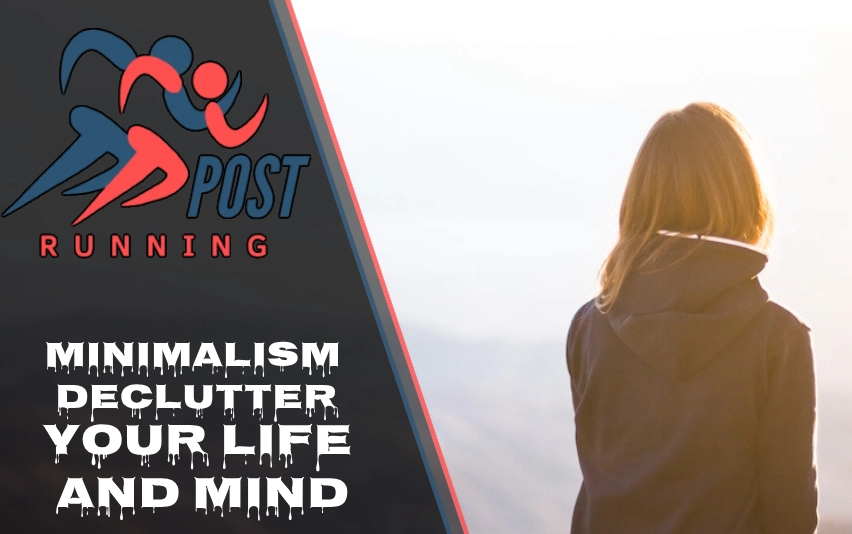In today’s fast-paced world, many of us find ourselves drowning in a sea of possessions, commitments, and mental clutter. But what if there was a way to simplify our lives and clear our minds? Can minimalism declutter your life and mind? The answer is a resounding yes. This article explores how embracing minimalism can lead to a more focused, peaceful, and fulfilling existence.
Introduction
Minimalism is more than just a trendy buzzword; it’s a powerful approach to life that can transform both your physical surroundings and your mental landscape. At its core, minimalism is about intentionally reducing distractions and focusing on what truly matters. By adopting this lifestyle, you can declutter not just your living space, but also your thoughts and emotions, leading to improved well-being and clarity.
Can minimalism declutter your life and mind? Let’s dive into the principles and practices that make this possible.
What is Minimalism?
Minimalism isn’t about living with nothing; it’s about living with just enough. It’s a conscious decision to pare down your possessions and commitments to focus on what brings genuine value to your life. Here’s what minimalism involves:
- Defining what “enough” means for you: This is personal and varies from person to person. It’s about identifying what you truly need to live a fulfilling life.
- Maximizing non-material experiences: Minimalism shifts focus from accumulating things to collecting experiences and memories.
- Adopting a mindset of gratitude and intentionality: It’s about appreciating what you have and making deliberate choices about what you allow into your life.
By embracing these principles, you can begin to declutter both your physical space and your mind.
Physical Decluttering
Benefits of Physical Decluttering
Can minimalism declutter your life? Absolutely, and it starts with your physical environment. Here are some key benefits:
- Reduces stress and anxiety: A cluttered space can lead to a cluttered mind. By simplifying your surroundings, you can create a more peaceful environment.
- Improves focus and productivity: With fewer distractions, you can concentrate better on important tasks.
- Creates space for meaningful activities: By removing unnecessary items, you make room for things that truly matter to you.
Steps to Declutter Your Space
- Start with one area at a time: Don’t try to tackle your entire home at once. Begin with a single drawer, closet, or room.
- Use the 90-day rule: If you haven’t used an item in the past 90 days and don’t plan to use it in the next 90, consider letting it go.
- Implement a one-in-one-out policy: For every new item you bring in, remove one existing item.
- Focus on quality over quantity: Invest in fewer, high-quality items that will last longer and serve you better.
By following these steps, you can create a more minimalist physical environment that supports a clearer, more focused life.
Mental Decluttering
Understanding Mental Clutter
Can minimalism declutter your mind? Indeed, it can. Mental clutter refers to the overwhelming thoughts, stress, and constant overthinking that can cloud your judgment and hinder your peace of mind. It’s the mental equivalent of a messy room, making it difficult to find what you need when you need it.
Psychological Minimalism
Psychological minimalism is the practice of simplifying your inner world. It involves:
- Identifying and letting go of mental burdens: This could include negative thought patterns, unnecessary worries, or outdated beliefs.
- Focusing attention on what brings clarity and joy: By consciously directing your thoughts towards positive and productive areas, you can reduce mental noise.
- Creating space for gratitude and presence: Minimalism encourages living in the moment and appreciating what you have.
Benefits of Mental Decluttering
Can minimalism declutter your mind? The benefits are numerous:
- Enhanced focus and mental clarity: With less mental noise, you can think more clearly and make better decisions.
- Reduced stress and anxiety: By letting go of unnecessary worries, you can experience greater peace of mind.
- Improved decision-making aligned with personal values: A decluttered mind allows you to focus on what truly matters to you.
- Greater sense of purpose and satisfaction: By eliminating mental distractions, you can concentrate on your goals and aspirations.
Practical Strategies for Life and Mind Decluttering
Now that we’ve explored how minimalism can declutter your life and mind, let’s look at some practical strategies to implement this approach:
- Assess belongings and remove unnecessary items: Go through your possessions and ask yourself if each item truly adds value to your life.
- Simplify daily routines and schedules: Streamline your daily activities to focus on what’s essential.
- Practice mindfulness and meditation: These techniques can help quiet your mind and reduce mental clutter.
- Let go of emotional baggage through journaling or therapy: Writing or talking about your feelings can help you process and release them.
- Learn to say “no” to commitments that don’t align with your values: It’s okay to decline invitations or requests that don’t serve your goals or well-being.
- Limit digital consumption and social media use: Constant connectivity can contribute to mental clutter. Set boundaries for your online activities.
By implementing these strategies, you can create a more minimalist lifestyle that supports both physical and mental clarity.
The Impact of Minimalism on Well-being
Can minimalism declutter your life and mind in a way that improves your overall well-being? Research and personal accounts suggest it can. Here’s how:
- Promotes lower anxiety and stress levels: By reducing physical and mental clutter, minimalism can lead to a calmer, more peaceful state of mind.
- Improves focus and productivity: With fewer distractions, you can concentrate better on important tasks and goals.
- Enhances relationships: By redirecting energy from material pursuits to personal connections, minimalism can lead to stronger, more meaningful relationships.
- Fosters a sense of freedom and tranquility: Letting go of unnecessary possessions and commitments can create a liberating sense of freedom.
Conclusion
So, can minimalism declutter your life and mind? The evidence strongly suggests that it can. By embracing minimalism, you can create a more intentional and fulfilling life. This approach helps declutter both your physical spaces and mental landscapes, leading to increased clarity, reduced stress, and a greater appreciation for life’s meaningful aspects.
Remember, minimalism isn’t about deprivation; it’s about making room for what truly matters. It’s a journey of discovering what’s essential in your life and letting go of the rest. Whether you’re looking to simplify your physical space, clear your mind, or both, minimalism offers a path to a more focused, peaceful, and satisfying life.
As you embark on your minimalist journey, be patient with yourself. Start small, celebrate your progress, and remember that the goal is not perfection, but improvement. Can minimalism declutter your life and mind? Yes, it can – and the journey towards that decluttered state can be as rewarding as the destination itself.
Discover more fascinating insights—explore Running Posts Today.















